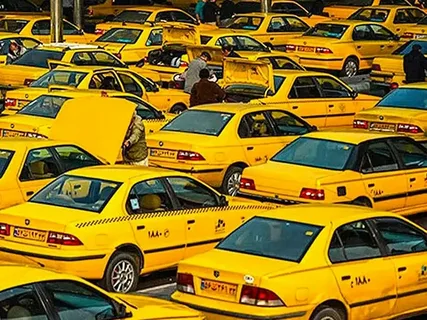Rules and Regulations for Taxis in the UK

Navigating the world of taxi regulations in the UK can feel like a maze, but understanding these rules is essential whether you’re a driver, operator, or passenger. The framework governing taxis has been carefully developed over decades to ensure safety, fairness, and quality service across the country.
Understanding the Two-Tier System
The UK taxi industry operates under a dual licensing system that often causes confusion. Hackney carriages, commonly known as black cabs, can be hailed directly from the street or found at designated taxi ranks. These vehicles are licensed to “ply for hire” and are subject to strict local authority regulations.
Private hire vehicles, on the other hand, must be pre-booked through a licensed operator. This category includes minicabs and executive cars, and bookings are typically made by telephone, app, or online platforms. Whether you’re arranging a Taxi from Eccles to Manchester Airport or any other private hire journey, the booking requirement remains mandatory.
Licensing Requirements and Local Authority Control
Each local authority across England and Wales holds responsibility for licensing taxis within their jurisdiction. This decentralised approach means regulations can vary significantly between areas, though core safety standards remain consistent nationwide.
Driver licences are issued after rigorous checks have been completed. Enhanced DBS (Disclosure and Barring Service) checks are mandatory, and these must be renewed regularly. Medical examinations are required to ensure drivers meet fitness standards, whilst knowledge tests assess familiarity with local geography and regulations.
Vehicle licensing involves comprehensive inspections that cover everything from mechanical safety to interior cleanliness. Annual MOT tests are supplemented by additional compliance checks, ensuring vehicles meet the enhanced standards expected of commercial passenger transport.
Vehicle Standards and Specifications
Strict specifications govern taxi vehicles to guarantee passenger safety and comfort. Age limits are commonly imposed, with many authorities requiring vehicles to be less than five years old when first licensed. Regular inspections ensure ongoing compliance with safety standards.
Accessibility features have become increasingly important, with many councils requiring a percentage of the fleet to accommodate wheelchair users. These regulations reflect the commitment to inclusive transport services across the UK.
Insurance requirements go beyond standard motor policies. Commercial hire and reward insurance is mandatory, providing comprehensive cover for passenger-carrying activities. The minimum coverage levels are set by regulation, though many operators choose enhanced protection.
Fare Regulations and Pricing Controls
Hackney carriage fares are typically regulated by local authorities, with maximum rates set through formal consultation processes. Fare tables must be clearly displayed within vehicles, and overcharging represents a serious licensing breach.
Private hire vehicles operate under different arrangements, with operators setting their own rates. However, these must be agreed before the journey begins, preventing unexpected charges. Many passengers appreciate the transparency this provides, particularly for longer journeys like a Taxi from Manchester Airport to Grimsby.
Driver Conduct and Professional Standards
Comprehensive conduct requirements ensure professional service delivery. Drivers must display their licences prominently and wear appropriate identification. Refusing reasonable bookings without valid cause can result in licensing action.
Training requirements vary by authority but typically include customer service, disability awareness, and safeguarding. These programmes ensure drivers understand their responsibilities towards vulnerable passengers and maintain professional standards.
Safety and Security Measures
CCTV systems are increasingly required in licensed vehicles, providing protection for both drivers and passengers. Data protection compliance ensures recorded material is handled appropriately whilst maintaining security benefits.
Regular vehicle inspections check safety equipment including fire extinguishers, first aid kits, and emergency communication systems. These requirements reflect the serious responsibility drivers carry when transporting members of the public.
Enforcement and Compliance
Local authority enforcement teams monitor compliance through regular inspections and mystery shopping exercises. Serious breaches can result in licence suspension or revocation, protecting public safety and maintaining industry standards.
Complaint procedures provide passengers with clear routes for raising concerns. These systems ensure accountability whilst helping identify training needs or systemic issues requiring attention.
Cross-Border Operations and Challenges
Recent years have seen increased scrutiny of cross-border working, where vehicles licensed in one area operate primarily in another. This practice, whilst legal, has raised concerns about regulatory oversight and local knowledge requirements.
For intercity journeys such as a Taxi from Manchester to East Midlands Airport, passengers should verify that operators hold appropriate licences for their intended route and understand which authority governs their booking.
Future Developments
The regulatory landscape continues evolving, with ongoing reviews examining everything from emission standards to driver background checks. Technology integration, including app-based booking systems and electronic payment methods, is being incorporated into existing frameworks whilst maintaining essential protections.
Understanding these regulations helps ensure safe, reliable taxi services across the UK. Whether you’re a regular user or occasional passenger, knowing your rights and the standards expected creates confidence in this essential transport service. The regulatory framework, whilst complex, ultimately serves to protect everyone involved in the taxi industry whilst maintaining the high standards British passengers rightly expect.


